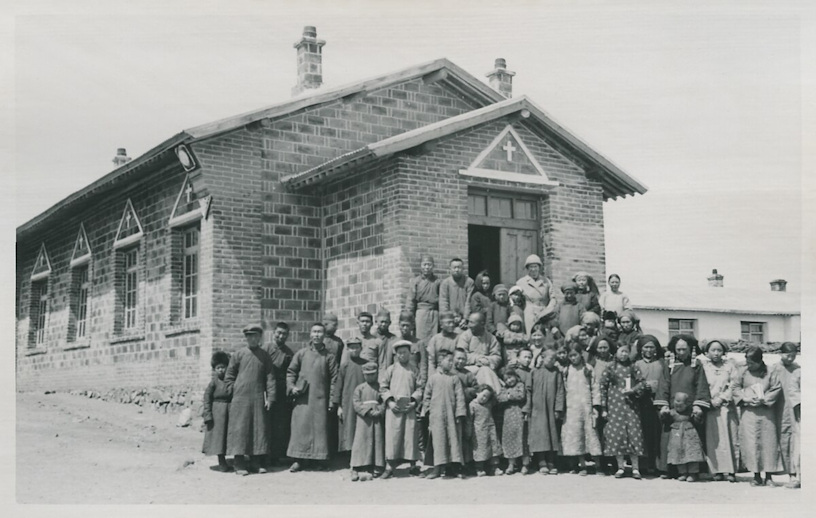
Classic art masterpieces used as illustrations
TL;DR:
From 1600 onward, Christian world evangelism has been deeply shaped by diverse theological traditions and the emergence of formal mission theology.
Three Major Traditions: Roman Catholic, Orthodox, and Protestant missions each contributed to global evangelization. No single tradition or theology monopolized missionary passion. Since 1600 AD, global missions have also been propelled by methodological innovation, leading to Christianity’s unprecedented worldwide reach and the maturation of missiology as a formal theological field.

To someone examining global Christian missions over the past four hundred years, two things stand out:
Kenneth Scott Latourette’s History of Christianity focuses on the expansion of Christianity rather than the doctrinal disputes often emphasized in church history. Although his book covers groups across the theological spectrum, nearly every page offers insights valuable to the study of Christianity's global spread.
In A History of Christian Missions, Stephen Neill describes the theological heterogeneity of those engaged in modern global missions. World evangelism has not been monopolized by any one of Christianity’s three main branches—Orthodox, Roman Catholic, or Protestant—nor by any single theological current within those branches.
Addressing the beginnings of the so-called "Great Century of Missions," Latourette acknowledges the missionary contributions of all three major Christian traditions.1 He notes that the expansion of Christianity from 1914 to 1950 included significant efforts by Roman Catholics as well as Protestants.2 One of the religious awakenings during this period, which reignited missionary passion, "cut across denominational and confessional lines."3
Within Protestantism, no single theological tradition stands out as especially missionary-minded. For instance, those from Arminian backgrounds might find it surprising that movements rooted in Calvinism could have vigorous missionary agendas. From an Arminian perspective, it may seem curious that Calvinism—with its emphasis on election (God’s choice of those to be saved in Christ before the world was created)—would foster a strong missionary consciousness.4 Yet it has.
Even the ecumenical movement, which was often harshly criticized in evangelical circles, included missionary visionaries. John Mott, a key leader in that movement, was a statesman and mobilizer for missions. Peter Beyerhaus and other mission theologians also participated in the ecumenical dialogue.
This wide theological diversity should not suggest that theology is irrelevant to world evangelism. In fact, when denominations abandon their theological roots, it can lead to a diminished missionary vision. Still, it remains true that the Christian missionary force is theologically diverse, and theological orientation is a poor predictor of missionary engagement or passion.
The second major theological trend of the past 400 years is the development of theologies of mission. Andrew Seumois writes: “Systematic research in the field of mission theology is a relatively recent development.”5 This has led to a new vocabulary for discussing missions. Terms like missiology, syncretism, dialogue, faith mission, indigenous church, people movements, cultural baggage, homogeneous units, and others are now central to conversations about strategy, methodology, and theology.
Major theological debates within the World Council of Churches have revolved around this area. Seumois concludes that the emergence of mission theology has elevated missions methodology into a scientifically scrutinized academic discipline.6 The growth of world mission departments in theological seminaries and the extensive bibliography in this field testify that we are in the "age of theology" when it comes to missions.
1 Kenneth Scott Latourette, A History of Christianity, rev. ed. (New York: Harper and Row, 1975), p. 1013
2 Ibid., p. 1357.
3 Ibid., p. 1018.
4 William Richey Hogg, “The Rise of Protestant Missionary Concerns,” in The Theology of the Christian Mission, Gerald H. Anderson, ed. (New York: McGraw-Hill, 1961), p. 101.
5 Andrew Seumois, “The Evolution of Mission Theology Among Roman Catholics,” in The Theology of the Christian Mission, Gerald H. Anderson, ed. (New York: McGraw-Hill, 1961), p. 122.
6 Ibid., p. 133.
-- Howard Culbertson, hculbert@snu.edu
Since 1600 AD, Christian world evangelization has been shaped by a dynamic mix of historical, cultural, and technological developments. These have expanded the reach of Christianity to diverse peoples and regions. Eight standout elements from the past 400+ years include:
| Here’s a PowerPoint presentation that breaks down 2,000 years of missions history into easily remembered 400-year segments. [more] |